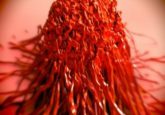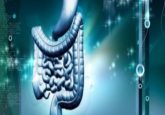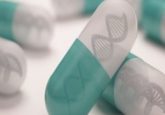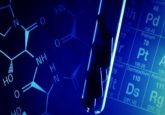Natural berry compounds could aid conventional drugs in pancreatic cancer treatment
Researchers have recently demonstrated that extracts from a wild berry may have the potential to increase the effectiveness of gemcitabine, a chemotherapy drug commonly used to treat pancreatic cancer.
The study was overseen by Harcharan Rooprai and Bashir Lwaleed from Kings College Hospital (London, UK) and the University of Southampton (UK), and their findings were reported online recently in the Journal of Clinical Pathology.
Aronia melanocarpa, more commonly referred to as chokeberry, is a wild berry predominantly found in eastern North America. Often located in swamps or wetlands, the chokeberry is associated with high vitamin content as well as elevated levels of antioxidants, including several polyphenols. These polyphenols are thought to regulate harmful by-products of cell activity.
This research suggests that adding nutraceuticals, in this case from chokeberry, to chemotherapy cycles may improve the effectiveness of conventional drugs used for treatment. This has added significance in scenarios that involve cancers that are particularly hard to treat. One example of such a scenario is in pancreatic cancer, which is known for its poor prognoses, with less than 5% of sufferers alive 5 years post-diagnosis.
The team suspected that chokeberry extract induces apoptosis in cancer cells; a theory developed due to the presence of known apoptosis markers in cells that had been treated. The study had three main strands, including testing how well cancer cells grew in the presence of gemcitabine, how well cancer cells grew against commercially available concentrations of chokeberry extract and how well the cells grew against a combination of gemcitabine and chokeberry. The cancer cells utilized in the investigation were all from the well-studied pancreatic cancer cell line, AsPC-1.
Analysis of their results demonstrated that 48 hours of chokeberry extract treatment induced cell death at 1ug / ml. In addition to this, it was found that the highest level of chokeberry extract tested (50 ug / ml) had no effect on blood vessel lining cells. This would indicate that cell death was occurring by other means than antiangiogenesis, a process that is important in cancer cell development.
Lwaleed commented: ‘These are very exciting results. The low doses of the extract greatly boosted the effectiveness of gemcitabine, when the two were combined. In addition, we found that lower doses of the conventional drug were needed, suggesting either that the compounds work together synergistically, or that the extract exerts a ‘supra-additive’ effect. This could change the way we deal with hard to treat cancers in the future.’
Other studies have shown that effectiveness of chokeberry in treating brain cancer; Rooprai and Lwaleed believe that more clinical trials are required to facilitate the full exploration of the potential of naturally occurring plant compounds.




